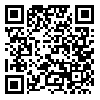Volume 1, Issue 3 (1-2019)
2019, 1(3): 0-0 |
Back to browse issues page
Download citation:
BibTeX | RIS | EndNote | Medlars | ProCite | Reference Manager | RefWorks
Send citation to:



BibTeX | RIS | EndNote | Medlars | ProCite | Reference Manager | RefWorks
Send citation to:
Shohani M, Mozafari M, Khorshidi A, Lotfi S. Comparison the effect of face to face and telenursing education on the quality of family caregivers caring in cancer patients referred to oncology ward Shahid Mostafa Khomaieni hospital, Ilam 2017. Journal title 2019; 1 (3)
URL: http://newresearch.medilam.ac.ir/article-1-314-en.html
URL: http://newresearch.medilam.ac.ir/article-1-314-en.html
Department of Nursing, School of Nursing and Midwifery, Ilam University of Medical sciences, Ilam, Iran
Abstract: (2322 Views)
Background and Aim: Taking care of patients with cancer often occurs at home and by family caregivers. However, this group of caregivers does not receive the necessary training on how to provide care at home. The present study aims to compare the effects of face-to-face and Telenursing training methods on the quality of family caregiver’s services for cancer patients.
Materials and Methods: In this interventional study 103 family caregivers of cancer patients were randomly divided into three groups of control (N= 35), face-to-face (N= 34), and telenursing (N= 34). The control group only received the routine training, and while the face-to-face and telenursing groups were trained for 12 weeks. Quality of care was measured using a researcher-made questionnaire with two subs scales; physical and psycosocial before and after intervention. Chi-square, Fisher's exact, ANOVA and LSD tests were used for data analysis. All analytical steps were performed using SPSS16 software.
Results: There were not significant differenc between three groups demographic characteristic (p>0.05). After intervention, the total quality score for the care of patients in face-to-face (166.13 ± 13.91) and telenursing (157.76 ± 17.24) groups was significantly higher than the control group (82.51 ± 16.84) (p < 0.001).
Conclusion: The results of the study showed that the two methods of training were effective on the quality of care among family caregivers of patients with cancer to a similar extent. It is recommended nurses used telephone, social network and face to face method in patient education. In addition, hospitals establishment a ward for education and patient follow up.
Materials and Methods: In this interventional study 103 family caregivers of cancer patients were randomly divided into three groups of control (N= 35), face-to-face (N= 34), and telenursing (N= 34). The control group only received the routine training, and while the face-to-face and telenursing groups were trained for 12 weeks. Quality of care was measured using a researcher-made questionnaire with two subs scales; physical and psycosocial before and after intervention. Chi-square, Fisher's exact, ANOVA and LSD tests were used for data analysis. All analytical steps were performed using SPSS16 software.
Results: There were not significant differenc between three groups demographic characteristic (p>0.05). After intervention, the total quality score for the care of patients in face-to-face (166.13 ± 13.91) and telenursing (157.76 ± 17.24) groups was significantly higher than the control group (82.51 ± 16.84) (p < 0.001).
Conclusion: The results of the study showed that the two methods of training were effective on the quality of care among family caregivers of patients with cancer to a similar extent. It is recommended nurses used telephone, social network and face to face method in patient education. In addition, hospitals establishment a ward for education and patient follow up.
: Cross sectional |
Subject:
General
Received: 2017/12/22 | Accepted: 2018/03/2 | Published: 2020/01/15
Received: 2017/12/22 | Accepted: 2018/03/2 | Published: 2020/01/15
Send email to the proposal executer
| Rights and permissions | |
 | This work is licensed under a Creative Commons Attribution-NonCommercial 4.0 International License. |






